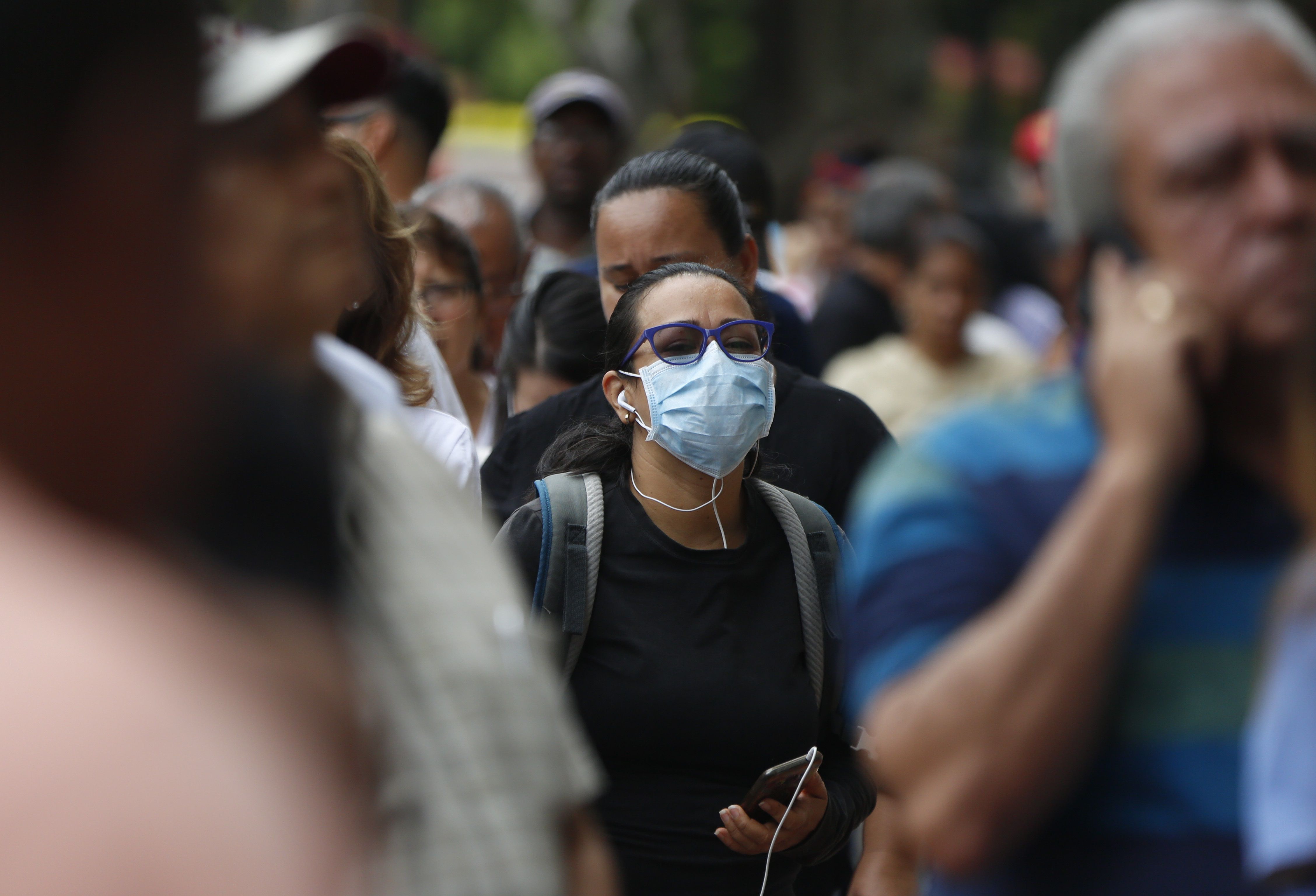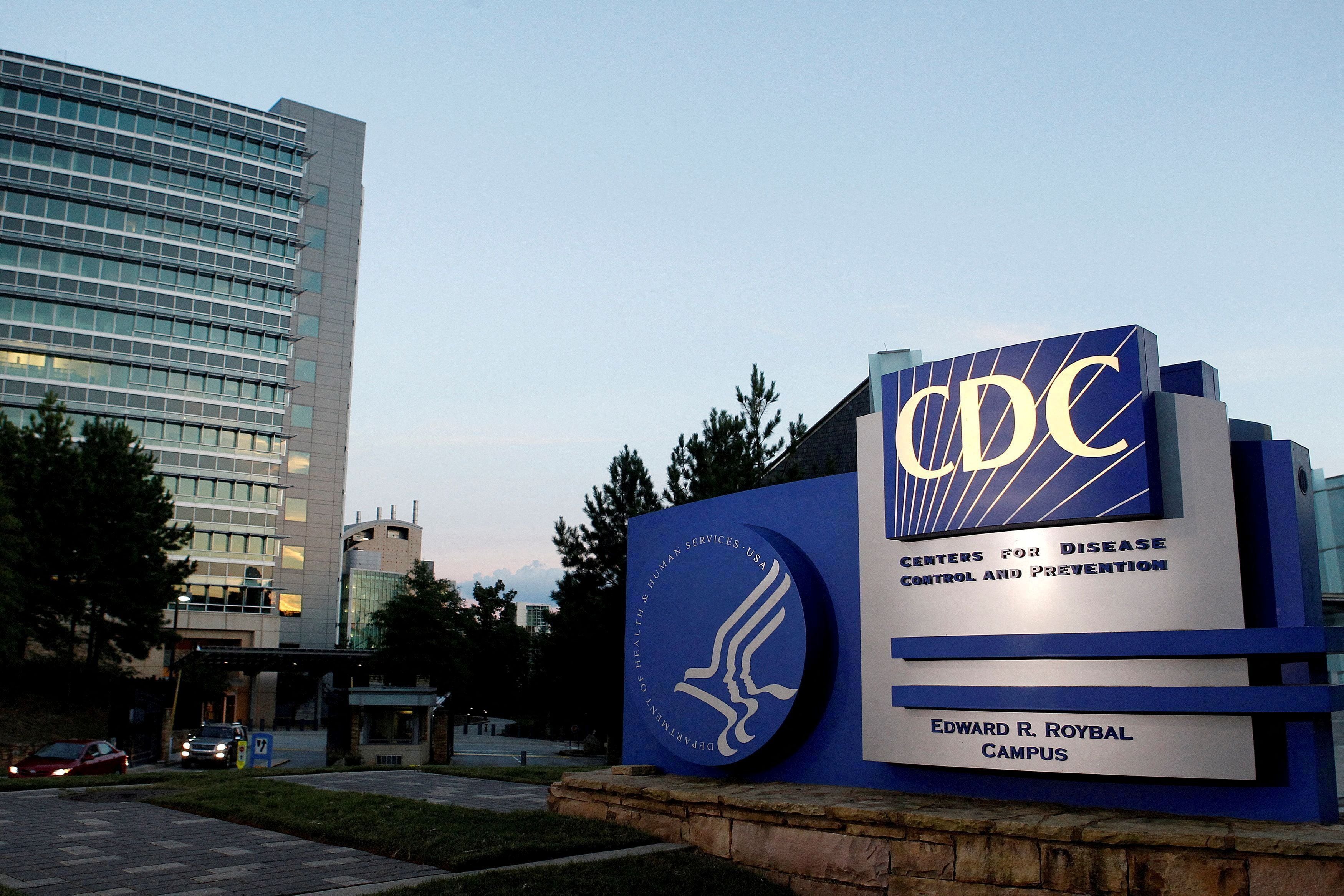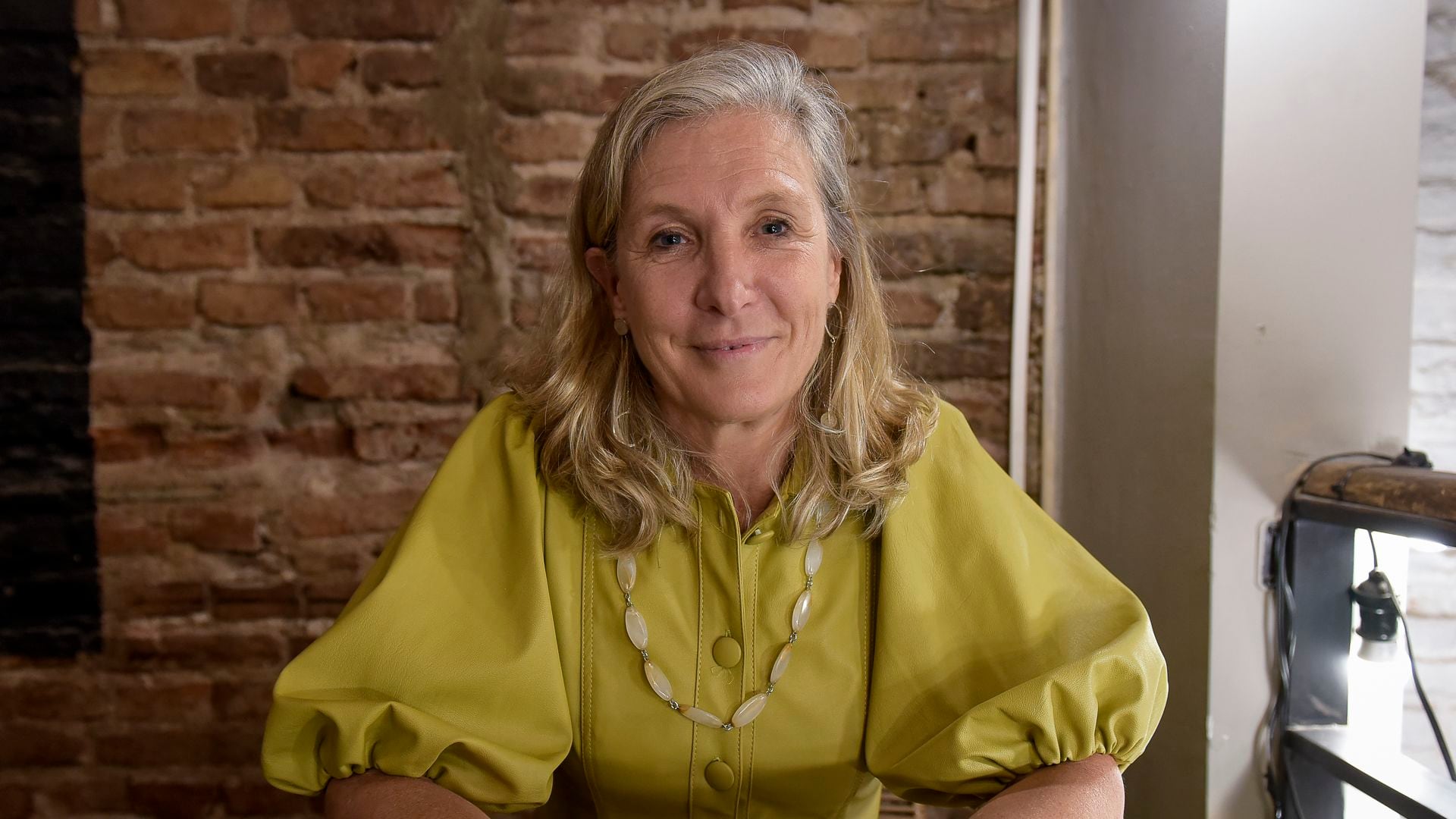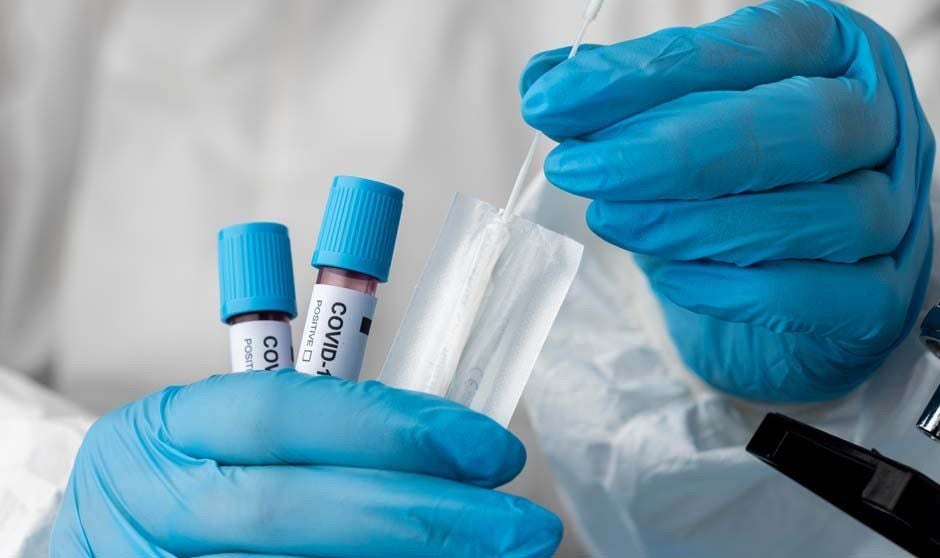
Viruses do not respect borders and this idea, which for many was strongly installed by the still current global pandemic caused by the SARS-CoV-2 virus - the cause of the COVID-19 disease - was already part of the DNA of the prestigious Centers for Disease Control and Prevention (CDC), which, as an effective federal health agency of the United States, are concerned with promoting global health security and cooperation with individual countries.
The two years of the pandemic added an ad hoc mission to CDC: to become a beacon of truthful and available information to address misinformation, scientific fake news and social disruption. CDC's work in the region has always been considered and the global plague did nothing but strengthen its presence. T he first step was the opening - in 2021 - of a South American CDC office in Brasilia, Brazil; vital to building a sustainable presence in South America. And the second step, and most forceful, is the expansion of the budget allocated to different “pandemics”, not just infectious diseases.
In dialogue with Infobae, during her visit to Buenos Aires, Juliette Morgan, regional director of the Centers for Disease Control and Prevention (CDC), anticipated having a budget of USD 2 million for her office to promote public health policies in the region, including Argentina. Morgan was born in the United States, but graduated as a doctor from the University of Buenos Aires and has been working at CDC for more than 20 years. He is now in charge of the brand new CDC regional office in Brasilia; and in the interview he intermingles his clean portuñol acquired with bursts of his perfect native English.

- Do you agree that the pandemic propelled - almost exponentially - the interest of societies in public health issues and for an agency such as the CDC opened a window of opportunity in these turbulent health times? , consulted Infobae.
-Juliette Morgan: Absolutely yes. And we have to take advantage of this time and that window. Something very amazing happened when we saw that the audiences had that eagerness to seek scientific and truthful information about health. And obviously a pandemic context transforms everything and puts it into relevance and perspective.
The raison d'être of the CDC - being the federal public health agency of the United States - is to increase technical cooperation with other regions of the world. And the pandemic came to spur and facilitate the idea of identifying opportunities to learn together, prevent and respond to all threats to public health in the region. The United States is one of the strongest advocates for global health security in the world, as well as being the largest bilateral health donor, and these commitments are of special importance within our own hemisphere.

- With two years of pandemic in tow, what lessons, challenges and pending issues lay ahead?
- One of the main things that I personally have learned, and that we have also learned from the CDC, is about humility. Faced with a disruptive situation that we thought we knew how to handle it, the evolution it took made us all more humble. And in that regard, we have learned a lot.
At first, we thought that the virus was going to behave like in some other epidemic, about which we had more experience, but that was not the case. Everyone remembers when we were washing everything: shopping from the supermarket, the surfaces, the shoes, the clothes and then we learned that it is a virus that is transmitted in an aerosolized way.. that is, through the air... We also thought at the beginning of the pandemic that the use of masks was going to be temporary, then came the fear of shortages... and the same happened with vaccines. I am referring to these back and forth, adjustments and improvement in health strategies for social care when I point out that this pandemic made us all more humble, because everyone! we had to learn a lot, even those who knew the most
We have also seen how misinformation impacts in times of chaos or social disruption, and that is a very painful thing. The United States, which theoretically should have been a leader, in this sense, due to problems of misinformation, has suffered a lot. And in the middle lives have been lost for this cause.

There are issues that are also vital in a pandemic, and that go beyond science and that could not be foreseen, such as the impact on mental health; one of the strongest consequences that this pandemic will leave. Teens and children have had a completely atypical time in their lives, and that too will have consequences. And not only because they have spent a lot of time locked up, but also because of the anxiety that the pandemic has created in them. It's a hard impact to measure.
Argentina and CDC share a strong history of collaboration with numerous initiatives that have been relevant to information generation and decision-making. Some of the activities CDC supports focus on surveillance, diagnosis and training in epidemiology; health at borders; and emergency response management.
-He doesn't think that the pandemic exposed a certain dissociation between science and society. It seemed that for many what happened inside the laboratory, or scientific advances, had nothing to do with everyday life... And the pandemic came to prove that it was! that there is a profound interplay between the world of science and the social impact...
Morgan: Absolutely. And especially for public health, which is what integrates all these elements and connects them with everyday life. I mean, if the virus is evolving... Do we close schools or do we not close schools? Do we wear a mask, or do we not wear a mask? , new technology vaccines vs. existing technology vaccines; vaccines that came out of several countries and equitable distribution. It must be understood that what happens in India or Argentina is relevant to everyone because we are interconnected, everyone went through this pandemic. We (the CDC) as a federal public health agency connected to the world need to bring science, information and interpret it so that people can trust that information.
The CDC office in Brasilia opened in 2021 in order to contribute in that regard. Our vision is just that: to establish these relationships so that together we can learn from each other. And that through relationships based on trust, on transparency, on the exchange of science, we can define what are the best measures for what comes next.

Numbers, heterologous vaccination and sequelae
The pandemic caused by the SARS-COV-2 virus did not leave numbers easy to digest around the globe: COVID-19 claimed more than 450 million infections and over 6 million deaths.
For its part, South America faces public health threats of its own arising from emerging diseases, humanitarian crises, changing ecosystems, urbanization and the problems resulting from habitat loss, travel and migration.
CDC looks closely at scientific research and successful evidence obtained in the country through various transdisciplinary groups - Conicet and others- on the strategy of heterologous vaccination against COVID-19. Juliette Morgan, the Minister of Health of the Nation, Carla Vizzotti, and the US Ambassador to Argentina, Marc Stanley, discussed this and other issues on Thursday.
The CDC Regional Director highlighted the recent publication in The Lancet magazine on the study conducted by the Ministry of Health and a handful of transdisciplinary local scientists - led by Andrea Gamarnik - on the effectiveness of Sputnik V, AstraZeneca and Sinopharm vaccines in preventing coronavirus infections and death in people over 60 years of age. Combined vaccination between doses from different platforms, also called heterologous vaccination, in the Argentine case was first a remedy for the shortage of COVID-19 vaccines throughout the country; and then it turned out to be an efficient strategy to implement booster or reinforcements, demonstrating that prolongs the lapse of immunity for people.
-In the face of vaccines against COVID-19, I ask you to analyze a paradoxical scenario: both the United States and Germany are countries that had an abundance of vaccines, but a low vaccination rate. In Argentina we went through shortages, however, we had a high rate of vaccinations. How do you analyze it?
Morgan: In general, immunization programs in South America have always been very strong. In other words, in Argentina, Brazil, Chile, and in all countries in South America, there is an acceptance and incorporation of the value that these interventions represent, these vaccines, which has made people's lives better.
When you see vaccination coverage in Chile or Argentina, they are the highest in the world. Right there we can also learn what the messages were, what were the interventions that worked. Or what are the reasons for the acceptance of an entire population that never doubted that they had to be vaccinated, compared to what happened in the United States or other countries in Europe... which was very difficult. I also think that because their health systems work well enough - in Europe or the US - they don't see vaccines as something very necessary.

-We already cite the joint work that took place among scientists around the world to defeat the pandemic: information was opened to make it available to everyone and that definitely prompted, for example, obtaining vaccines in a short time: something that would have taken ten years, ended up happening in one... Do you think that this system of transparency in relation to information will be preserved?
- The collaborative work of science was one of the best things that have happened during the pandemic. Another good thing has been the easing of international health regulations. After our experience with SARS - in 2003 - there was a reform of international health regulations that yielded transparency in information. For example, China published on the web and accessible to everyone the genomic sequencing of the SAR-COV-2 virus; and this undoubtedly made it possible to accelerate the production of vaccines against COVID, especially the innovative vaccines of genomic origin, those of messenger RNA. But we still need a lot more...
-If we could run away from the pandemic for a moment, what problems is CDC looking at now in the region and the world at large?
-Inequality is one of the main public health problems in the region. When we have a pandemic or a global health threat, it is not solved with half the world vaccinated, and the other half without vaccines; and this is still very difficult to understand. Among the great challenges at the global level, inequity is one of the biggest problems, and it will be worsened by climate change. Because that problem is going to affect those who are already in vulnerable situations, of poverty, and that inequity is going to worsen. And access to a health system that works is also going to worsen.

For South America, it is important to bet on computer health systems - the ability to gather information at all levels: local, municipal, provincial, regional and national levels - in order to build epidemiological information. And that it serves to make decisions for the whole.
And it should also be noted that public health does not only include infections, but other chronic diseases, such as obesity, hypertension, cardiovascular, diabetes, among the most prevalent. These will increasingly be a heavy burden on the health system, but since they are slower, they give us a little more time to address them. But we must know that they are also pandemics.
Gustavo Gavotti: Photos
KEEP READING
Últimas Noticias
Debanhi Escobar: they secured the motel where she was found lifeless in a cistern
Members of the Specialized Prosecutor's Office in Nuevo León secured the Nueva Castilla Motel as part of the investigations into the case

The oldest person in the world died at the age of 119
Kane Tanaka lived in Japan. She was born six months earlier than George Orwell, the same year that the Wright brothers first flew, and Marie Curie became the first woman to win a Nobel Prize

Macabre find in CDMX: they left a body bagged and tied in a taxi
The body was left in the back seats of the car. It was covered with black bags and tied with industrial tape
The eagles of America will face Manchester City in a duel of legends. Here are the details
The top Mexican football champion will play a match with Pep Guardiola's squad in the Lone Star Cup

Why is it good to bring dogs out to know the world when they are puppies
A so-called protection against the spread of diseases threatens the integral development of dogs




